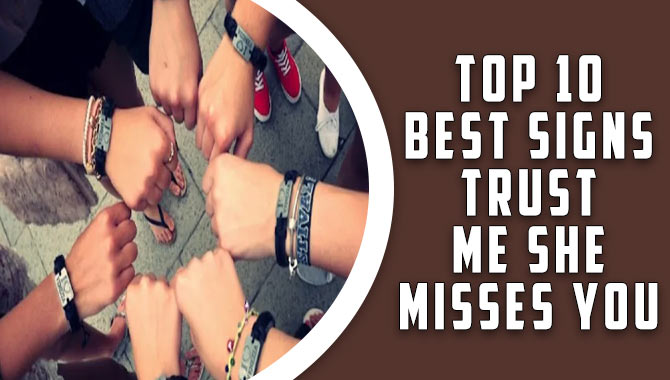Dating a narcissist can be challenging. The best relationship advice focuses on recognizing narcissistic traits, protecting your emotional well-being, and setting firm boundaries. Learn to navigate these dynamics for healthier interactions and a stronger sense of self.
Navigating the world of dating can feel like a maze, and sometimes, you encounter a personality that makes it even trickier. If you’re finding yourself confused, drained, or constantly walking on eggshells in a relationship, you might be dealing with a narcissist. It’s not about blame, but about understanding. Many people wonder, “Am I dating someone with narcissistic traits?” This is a common and frustrating question. You deserve clarity and peace of mind. This article will guide you through understanding these dynamics, offering practical steps to protect yourself and nurture your emotional health. We’ll explore what it means to date someone with narcissistic tendencies and how to build resilience.
Understanding Narcissistic Personality Disorder (NPD)
When we talk about “narcissists,” it’s important to understand that this term is often used casually. However, Narcissistic Personality Disorder (NPD) is a clinical diagnosis. People with NPD have an inflated sense of self-importance, a deep need for excessive attention and admiration, troubled relationships, and a lack of empathy for others. However, behind this mask of extreme confidence lies a fragile self-esteem that’s vulnerable to the slightest criticism. It’s not just about being a little vain or self-centered; it’s a pervasive pattern of behavior that affects all areas of their life.
It’s crucial to remember that only a qualified mental health professional can diagnose NPD. However, recognizing common traits can help you understand certain relationship dynamics. These traits typically manifest in behaviors that can be confusing and emotionally taxing for partners. Understanding these patterns is the first step toward healthy navigation.
Key Traits of Narcissistic Behavior
While not everyone exhibiting these traits has NPD, recognizing them can be insightful. These are often the behaviors that make dating someone feel particularly difficult:
- Grandiosity and Sense of Self-Importance: They often exaggerate their achievements and talents, expecting recognition without commensurate achievements.
- Preoccupation with Fantasies: They may fantasize about unlimited success, power, brilliance, beauty, or the perfect love.
- Belief in Being “Special”: They believe they are special and can only be understood by, or should associate with, other special or high-status people (or institutions).
- Need for Excessive Admiration: They crave constant attention and praise from others.
- Sense of Entitlement: They have unreasonable expectations of especially favorable treatment or automatic compliance with their expectations.
- Exploitative Behavior: They take advantage of others to achieve their own ends.
- Lack of Empathy: They are unwilling or unable to recognize or identify with the feelings and needs of others.
- Envy: They are often envious of others or believe that others are envious of them.
- Arrogance: They display arrogant, haughty behaviors or attitudes.
These traits can create a dynamic where one person constantly feels like they are performing for the other, or their own needs are consistently overlooked. It’s a pattern that can deeply impact your emotional well-being.
The Impact of Dating a Narcissist
Dating someone with narcissistic traits can feel like a rollercoaster. Initially, they can be incredibly charming and attentive, sweeping you off your feet – this is often referred to as “love bombing.” However, this intense phase can be followed by devaluation, criticism, and emotional distance. This inconsistency can leave you feeling confused, anxious, and questioning your own worth. The lack of empathy means that your feelings and needs may not be truly understood or validated, leading to a sense of isolation within the relationship.
Over time, this dynamic can chip away at your self-esteem and confidence. You might find yourself constantly trying to please your partner, seeking their approval, and walking on eggshells to avoid conflict or criticism. This can be exhausting and detrimental to your mental health. The focus often shifts from a healthy, balanced partnership to one where you are primarily supporting the emotional needs of the narcissist.
Common Challenges You Might Face
If you are dating someone with narcissistic traits, you might be experiencing some of these common issues:
- Constant criticism: It feels like nothing you do is ever good enough.
- Gaslighting: Your reality is questioned, making you doubt your own memory and sanity.
- Emotional manipulation: They use guilt, charm, or threats to control your behavior.
- Lack of accountability: They rarely take responsibility for their actions and instead blame others.
- Unpredictability: You never know what mood they will be in or what to expect.
- Feeling drained: The relationship consistently leaves you feeling exhausted and depleted.
- Isolation: They might try to isolate you from friends and family.
These challenges are not a reflection of your worth or your ability to be a good partner. They are symptoms of an unhealthy relational dynamic often associated with narcissistic traits.
Best Relationship Advice: Navigating the Dynamics
When you’re in a relationship with someone who exhibits narcissistic traits, the “best relationship advice” shifts from typical couple-focused strategies to a more self-preservation-oriented approach. This isn’t about changing the other person, but about understanding the dynamic and protecting your own emotional and mental well-being. It requires a conscious effort to maintain your sense of self and establish healthy boundaries.
The goal is to create a healthier interaction, even if their behavior remains consistent. This involves clear communication, realistic expectations, and prioritizing your own needs. Remember, a healthy relationship should uplift you, not deplete you. If you find yourself consistently unhappy or drained, it might be time to re-evaluate the viability of the relationship long-term.
Step-by-Step Guide to Dating a Narcissist
Navigating a relationship with someone exhibiting narcissistic traits requires a strategic approach. Here’s a step-by-step guide:
- Educate Yourself: The first and most critical step is to understand narcissistic traits. Learning about NPD and related behaviors will help you recognize patterns and detach emotionally from them. Resources like the National Institute of Mental Health (NIMH) provide foundational information on personality disorders.
- Manage Your Expectations: Accept that the person may not change. They likely won’t develop deep empathy or consistently prioritize your needs. Adjusting your expectations to be more realistic can significantly reduce your own disappointment and frustration.
- Set Firm Boundaries: This is paramount. Clearly define what behavior you will and will not accept. Communicate these boundaries calmly and assertively. For example, “I will not tolerate being yelled at. If that happens, I will end the conversation.”
- Practice Detachment: This doesn’t mean not caring, but rather disentangling your emotional well-being from their actions and reactions. Remind yourself that their behavior is a reflection of them, not you.
- Focus on Their Actions, Not Their Words: Narcissists can be very convincing with their words, but their actions often tell a different story. Pay attention to what they do, rather than what they say they will do or how they claim to feel.
- Document Important Conversations (When Necessary): For significant agreements or disagreements, keep a record. This can help combat gaslighting and provide a factual reference if their memory or version of events differs significantly from yours.
- Strengthen Your Support System: Lean on trusted friends, family, or a therapist. Having people outside the dynamic who can offer objective perspectives and emotional support is vital.
- Prioritize Self-Care: Engage in activities that nourish your mind, body, and soul. This could include hobbies, exercise, mindfulness, or spending time in nature. Self-care is not selfish; it’s essential for maintaining your resilience.
- Seek Professional Help: A therapist can provide invaluable tools and strategies for coping with these dynamics, rebuilding your self-esteem, and making informed decisions about the relationship.
Communication Strategies
Communicating with someone who may have narcissistic traits requires a specific approach to minimize conflict and protect yourself. The goal is to be clear, concise, and objective.
- Be Direct and Concise: Avoid lengthy explanations or emotional appeals, as these can be manipulated. State your needs or observations clearly and simply.
- Use “I” Statements: Frame your feelings and needs around your own experience. For example, instead of “You always ignore me,” try “I feel unheard when…”
- Avoid JADE (Justify, Argue, Defend, Explain): Engaging in these behaviors with a narcissist is often unproductive. They tend to twist your words or use your explanations against you.
- Focus on Behavior, Not Intent: Comment on observable actions rather than trying to interpret their motives. “When you said X, it made me feel Y” is more effective than “You said X because you wanted to hurt me.”
- Know When to Disengage: If a conversation becomes circular, accusatory, or emotionally charged, it’s okay to disengage. State calmly that you are ending the discussion and will revisit it later, or not at all.
Setting and Enforcing Boundaries
Boundaries are your personal rules for how you will allow others to treat you. For someone dating a narcissist, boundaries are not optional; they are essential for self-preservation. Enforcement is key.
Table: Boundary Setting in Narcissistic Relationships
| Type of Boundary | Why It’s Important | How to Set It | Enforcement |
|---|---|---|---|
| Emotional Boundaries | Protecting your feelings and self-worth from criticism, manipulation, or blame. | “I will not accept personal insults or be blamed for your actions.” | If insults occur, calmly state: “I’m ending this conversation now because I will not be insulted.” Then disengage. |
| Time Boundaries | Ensuring you have time for yourself and other relationships; not being on call constantly. | “I need X amount of time for myself each week,” or “I will not be available for calls after 9 PM.” | If your time is invaded, calmly say: “I am unavailable right now as per our agreement.” |
| Physical Boundaries | Maintaining your personal space and safety. | “Please do not enter my personal space uninvited,” or “I need physical distance when we disagree.” | If space is invaded, firmly state: “I need you to step back.” If necessary, leave the situation. |
| Communication Boundaries | Setting rules for respectful interaction during conversations. | “I will not engage if you raise your voice,” or “We will speak calmly and without interruption.” | If rules are broken: “As we agreed, we will speak calmly. I’m pausing this conversation until we can do that.” |
Enforcing boundaries means consistently following through with the consequences you’ve stated when they are crossed. This can be difficult, especially when faced with resistance or manipulation, but it’s crucial for establishing respect and protecting your well-being. It teaches the other person how you expect to be treated.
Protecting Your Emotional Well-being
Dating a narcissist can take a significant toll on your emotional health. The constant need for validation, the susceptibility to criticism, and the emotional manipulation can lead to anxiety, depression, and a distorted sense of self. It’s vital to actively nurture your own emotional resilience. This involves recognizing the impact the relationship has on you and taking proactive steps to safeguard your mental state. This isn’t about blaming the other person, but about ensuring you are not losing yourself in the process.
Prioritizing self-care becomes less of a luxury and more of a necessity. It’s about recharging your batteries, reinforcing your sense of self-worth, and creating an internal buffer against the challenging dynamics of the relationship. Without this, you risk becoming emotionally depleted, which can severely impact all areas of your life.
Self-Care Strategies
Implementing consistent self-care is non-negotiable when you’re navigating a relationship with a partner who exhibits narcissistic traits. These practices help you maintain your internal equilibrium and reinforce your sense of self.
- Mindfulness and Meditation: Practicing mindfulness can help you stay present, observe your thoughts and emotions without judgment, and detach from narratives that aren’t serving you. Apps like Calm or Headspace offer guided meditations.
- Journaling: Regularly writing down your thoughts, feelings, and experiences can provide clarity and help you process difficult emotions. It can also be a tool to track patterns of behavior.
- Physical Activity: Exercise is a powerful stress reliever. Whether it’s walking, yoga, running, or dancing, find an activity you enjoy and make it a regular part of your routine.
- Creative Outlets: Engaging in hobbies like painting, writing, playing music, or gardening can be incredibly therapeutic, allowing you to express yourself and tap into your creativity.
- Spending Time in Nature: Connecting with the natural world has proven benefits for mental health, reducing stress and improving mood.
- Adequate Sleep: Prioritize getting enough restful sleep. It is fundamental for emotional regulation and cognitive function.
- Nourishing Diet: Eating balanced, healthy meals supports not only your physical health but also your mental and emotional well-being.
Remember, self-care is an ongoing practice, not a one-time fix. Be patient and compassionate with yourself as you integrate these practices into your life.
Building Your Self-Esteem
When you’re in a relationship that consistently undermines your confidence, actively rebuilding your self-esteem is crucial. It’s about remembering your worth independently of your partner’s perceptions or validation.
- Affirmations: Start your day with positive affirmations that remind you of your strengths and inherent worth. Write them down, say them aloud. Examples: “I am worthy of respect,” “My feelings are valid,” “I am strong and capable.”
- Celebrate Small Victories: Acknowledge and celebrate every accomplishment, no matter how small. Did you set a boundary? Did you take time for yourself? Recognize these as significant acts of self-power.
- Challenge Negative Self-Talk: Become aware of critical inner dialogues. When you catch yourself thinking negatively about yourself, pause and ask if you would say that to a friend. Replace negative thoughts with more balanced or positive ones.
- Engage in Activities You Excel At: Participate in activities where you feel competent and successful. This helps reinforce a sense of capability and mastery.
- Seek Positive Reinforcement: Surround yourself with people who lift you up, encourage you, and see your value. Positive feedback from trusted sources can counteract negativity.
- Learn Something New: Acquiring new skills or knowledge can boost your confidence and sense of accomplishment. This could be anything from a new language to a cooking class.
Your self-esteem is a vital internal resource. Nurturing it will empower you to make healthier choices for yourself, both within and outside the relationship.
When Is It Time to Leave?
This is perhaps the most difficult question for anyone in this situation, but it’s a crucial one to consider. While it’s possible to have functional interactions with someone exhibiting narcissistic traits, there comes a point where the cost to your well-being outweighs any potential benefits. The decision to leave is deeply personal and should be based on your own health, happiness, and safety.
If the relationship consistently leaves you feeling anxious, depressed, or less than yourself, despite your best efforts to set boundaries and practice self-care, it might be a sign that the dynamic is too damaging to sustain. Open communication about your needs may be met with deflection, blame, or further manipulation, indicating a lack of willingness or capacity for genuine partnership. If you find yourself contemplating this question frequently, it’s a strong indicator that a deeper evaluation is needed.
Red Flags That Indicate Leaving Might Be Necessary
- Persistent Emotional Abuse: Constant criticism, belittling, or devaluation beyond occasional disagreements.
- Lack of Empathy for Your Suffering: When you express pain or distress, and they remain indifferent, dismissive, or even enjoy it.
- Escalating Gaslighting: When you are constantly questioning your sanity and reality.
- Complete Isolation: If they have successfully cut you off from your support network, making you solely reliant on them.
- Lack of Reciprocity: The relationship is always about their needs, and yours are perpetually unmet or ignored.
- Threats or Intimidation: Any form of threat, overt or subtle, to control or punish you.
- Your Physical or Mental Health is Severely Deteriorating: If your health is suffering significantly due to the stress of the relationship.
- History of Abusive Patterns: If they have a documented history of harming others or repeat damaging behaviors despite promises to change.
These red flags are







